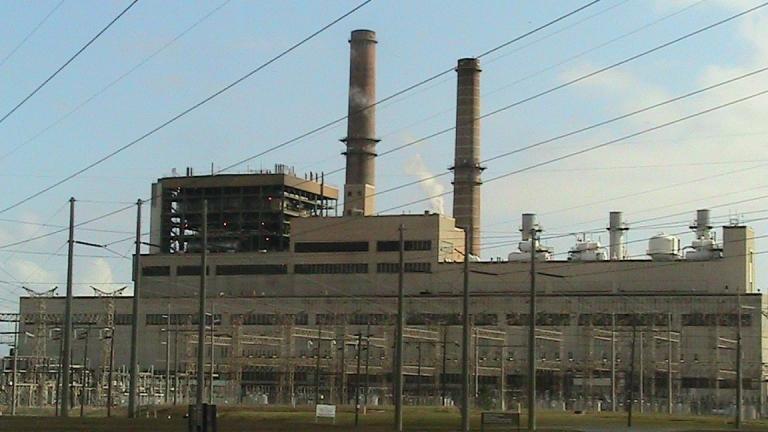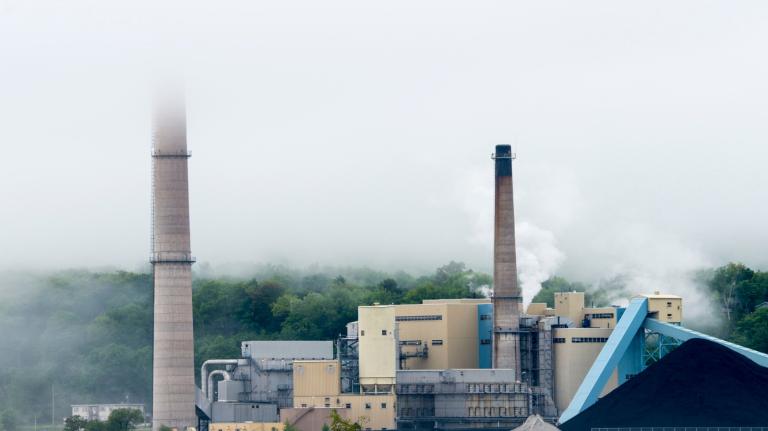At the risk of stating the obvious, the climate movement has had a hard road, experiencing a series of detours, flat tires, and roadblocks in over 20 years of aggressive attempts to spur action. What seemed like the most obvious strategy — presenting the startling and worrisome facts to the public and to elected officials — didn’t work because there was too much fossil fuel money pushing disinformation. The business case — that saving energy is profitable — didn’t work because it didn’t scale, and because energy is so cheap in the U.S. that saving it hasn’t been all that attractive. And a push for policy, absent a real movement, failed as well in the early years of the Obama Administration.
The newest strategy, imbued with much hope, and endorsed by such groups as 350.org and Citizens Climate Lobby, (and this writer!) is the development of a social movement to create the political will to pass meaningful policy. But is a social movement enough?
Grist’s own Ben Adler pointed out to me that he was in the streets of New York with a million protesters before the Iraq war, “and it didn’t do any good. The climate movement doesn’t have close to a million people.” And would it matter if it did?
That’s kind of a good point. Sure, we’re in the middle of a stunning, and unexpectedly rapid, social movement victory on same sex marriage. But gay marriage is a very tangible issue of equity, and there weren’t huge monied interests in opposition.
Climate is a different beast. To win, we have to defeat the fossil-industrial complex, which has metastasized throughout our broken government apparatus. A social movement might create the political will for change, but the filibuster could very well stop progress anyway, as happened with Waxman-Markey.
We’ve thrown every tool in the toolbox at this problem, plus the box itself and the tool bench, and yet progress is absent or slow. Obama’s climate actions are groundbreaking, but they are late, and hardly sufficient. As we reach an inflection point in this battle (the fact that time is running out), are there any other weapons available to us?
Well, actually there’s one, and it’s pretty big. In a land in awe of business leaders and obsessed with profits, free markets, and the bottom line, we have a shiny battle axe capable of changing the tide of the fight. Crazily, it appears that it has almost never been used, at least in the United States. It’s our country’s collection of influential, powerful, and wealthy CEOs at large companies.
Wouldn’t conservatives in Congress, the crucial group needed for climate action, be moved by pleas from the best, the brightest, and the most profitable of our business leaders? Wouldn’t an op-ed berating Congress and demanding action, signed by 20 fortune 500 CEOs drive some level of change in Washington?
Well, maybe, but we just don’t know, because there’s been deafening silence. Even though some 700 corporations signed a declaration that asks the U.S. to lead on climate, I found examples of only two American CEOs at large companies (those at Symatec and Munich Re America) who’ve spoken up on the issue, and none who have written an op-ed, or even tweeted, on the need for climate action. Even the two CEOs who spoke were not demanding action from Congress, as much as supporting Obama’s climate plan.
Writer Jo Confino brought up the need for CEO voices on climate over a year ago in an excellent piece in the Guardian, in which he cites a hilariously lame quote from GM’s CEO Dan Akerson, who at least had the stones to mention climate. He said: “It is pretty hard not to be convinced that something is happening in the world.” Now there’s stirring, Kennedyesque leadership!
In that article Confino cites Unilever’s CEO Paul Polman as one of the few who have made bold statements, but then, he’s not an American, and the world needs American leadership. When Confino explored what might hold CEOs back, he found that “the answer is often that they ‘don’t feel safe to do so.’”
“As one expert told me,” he writes, ‘They are constantly calculating whom they might offend.’” He also cites the concern that investors, who “have the companies by the balls” and want to avoid a carbon tax at all costs.
But things have changed. There is now so much analysis of the costs of inaction from conservative economists like Yale’s William Nordhaus and many others, including the White House, and so many clear signs of those costs, that any semi-skilled business leader could make the case to investors for a carbon tax. And the overwhelming and high-quality science that’s being firehosed at us on a daily basis, plus the changing public conversation (and the changing world) means the risks of taking a stand on climate are becoming vanishingly small.
Most exciting is that the first-to-market as a climate leader, from the CEO level, will own the space. Who’s going to grab this? How often in the U.S. is the field wide open to take a progressive stance on an obvious, growing threat most American support solving?
U.S. CEO silence is more baffling because many Fortune 500 leaders (I’d venture to say most of them) understand the threat climate change poses and care about the issue. Coca-Cola, for example, cited climate risk in a well-publicized New York Times article last winter. Coke’s CEO, Muhtar Kent, was one of only a handful of U.S. CEOs who went to the climate talks in Copenhagen, and in an interview there he said “It is absolutely imperative that our commitment to a low-carbon future be fully understood. We’re here to lend a Coca-Cola voice to the public and political debate on getting to … an effective framework so that we can achieve climate protection.”
But maddeningly, Kent’s international statements have been poorly covered, and he hasn’t made similar noise in the U.S. Yet the U.S., not the rest of the world, is where we desperately need that leadership.
Similarly, Walmart has an enormously progressive clean energy program that favors substance and real clean energy development over token efforts like buying green energy credits. So do Pepsi, Microsoft, and Google. But the CEOs are lock-the-mouth-and-swallow-the-key silent.
In the great crisis of our time, where is Jeff Immelt of GE, a business so focused on the infrastructure of clean energy? Where is Fred Smith of Fedex, which has long been a sustainability leader and which was instrumental in helping to support and pass Obama’s fuel efficiency standards? Where is Howard Schultz of Starbucks, whose company has publicly expressed concern over climate’s threats to coffee, whose sustainability employees regularly make strong statements in favor of climate action in D.C, and who himself has spoken so admirably and fearlessly in support of same sex marriage, in favor of increased minimum wages, and against guns in shops?
Whoever leads will gather to him or herself one of the great prizes of the century: early visionary leadership on climate. And unlike the early days of civil or gay rights or other issues, with climate, it’s absolutely clear where this is going, and it’s clear that leadership will be widely perceived as good.
So, step on up, great and visionary leaders of business! Your time has come, and we need you sorely.



